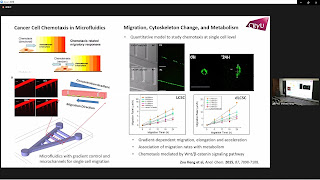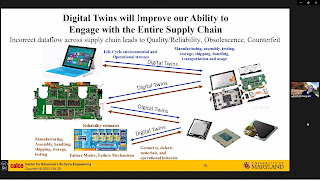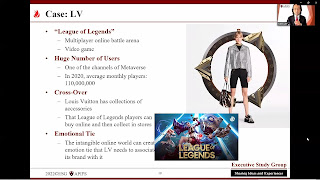Machine: Angle of incidence should be
<40 degree (Drone) and on-site functionality test that proposed to recognize
a distinct object (e.g. fingers) clearly at five locations.
Material: It is good for Rendering, Tiles, Bricks but not for Glass and Metal Cladding.
Environment: It included time factor,
orientation factor, and fine weather.
Finally, Dr. Wallace Lai mentioned the infrared image interpretation and its limitations.
Reference:
HKCTC
- https://www.hkctc.gov.hk/en/home/index.html
HKAS - https://www.itc.gov.hk/en/quality/hkas/index.html
Previous ICAC involved T&C Seminars:
20210705: HKCTC Professional
Integrity and Corruption Prevention in Testing and Certification Webinar 2021 -
https://qualityalchemist.blogspot.com/2021/07/hkctc-professional-integrity-and.html
20210105: HKCTC Webinar –
Underground Utility Survey Based on Nondestructive Testing, Surveying, Imaging
and Diagnostic (NDTSID) Approaches - https://qualityalchemist.blogspot.com/2021/01/hkctc-webinar-underground-utility.html
20180712: HKAS & HKCTC
Seminar on Cybersecurity Testing - https://qualityalchemist.blogspot.com/2018/07/hkas-hkctc-seminar-on-cybersecurity.html
20180131: HKCTC Seminar on
the Latest Development of Testing and Certification under CEPA - https://qualityalchemist.blogspot.com/2018/01/hkctc-seminar-on-latest-development-of.html
20180126: HKCTC Seminar on
the Latest Development in Construction Material Testing, Inspection and
Certification - https://qualityalchemist.blogspot.com/2018/01/hkctc-seminar-on-latest-development-in.html
20171218: HKCTC Seminar on
Testing and Certification for Environmental Excellence - https://qualityalchemist.blogspot.com/2017/12/hkctc-seminar-on-testing-and.html
20170710:
HKCTC Seminar on Integrity and Professional Development in Testing and
Certification Industry - https://qualityalchemist.blogspot.com/2017/07/hkctc-seminar-on-integrity-and.html
20161012:
HKCTC Seminar on Professional Integrity in Testing and Certification - https://qualityalchemist.blogspot.com/2016/10/hkctc-seminar-on-professional-integrity.html
20160627:
HKCTC Seminar on Professional Integrity in Testing and Certification - https://qualityalchemist.blogspot.hk/2016/06/hkctc-seminar-on-professional-integrity.html
20150713:
HKCTC Seminar on Professional Integrity in Testing and Certification - http://qualityalchemist.blogspot.hk/2015/07/hkctc-seminar-on-professional-integrity.html
20140114:
ICAC Training Workshop for HKAS Accredited Organizations - http://qualityalchemist.blogspot.hk/2014/01/icac-training-workshop-for-hkas.html
20131008:
HKCTC Seminar on Integrity and Professional Development in Testing &
Certification Industry - http://qualityalchemist.blogspot.hk/2013/10/hkctc-seminar-on-integrity-and.html
20111103:
Ethical Management Seminar for Testing and Certification Industry - http://qualityalchemist.blogspot.hk/2011/11/ethical-management-seminar-for-testing.html
20110916:
Seminar on Supports to Testing and Certification Industry - https://qualityalchemist.blogspot.hk/2011/09/seminar-on-supports-to-testing-and.html
20101025:
Seminar on Support to Testing and Certification Industry - http://qualityalchemist.blogspot.hk/2010/10/seminar-on-support-to-testing-and.html


















































